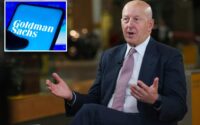What retailers could learn from Steve Jobs: Mickey Drexler
Retail legend Mickey Drexler, former CEO of Gap and J.Crew, talks about his latest venture, explains why he thinks small is the new big, and what the troubled industry could learn from Steve Jobs.
Lydia: It feels like J.Crew, Gap, and Old Navy have lost their cachet — what happened?
Mickey: I don’t want to comment on this because I have a long history with each of these brands and I really cherish my time at every one of them.
I do think that focused data is critical to every business; however, I think there is an over reliance on it. Everything in retail has become very data-centric and decisions are being made based on an algorithm.
Guess what: DATA DOESN’T DESIGN PRODUCT. Data isn’t creative. Data has no emotion. It doesn’t take into consideration any instinct or gut feeling. The other challenge with making exclusively data-based decisions is that you’re always looking in the rearview mirror. True innovation is future focused and that requires using a combination of your instinct and data to create a great product.
Lydia: Are there any iconic brands that you still believe are accessible?
Mickey: I think most brands have become too accessible now. Just look on the street and look at the bags people are carrying. Everyone seems to be carrying a designer bag now. I like something that no one else is wearing — antiques or one-of-a-kind designs.

Lydia: Steve Jobs brought you onto the Apple board to get your expertise when they were going to launch stores . How important has the Apple Store experience been for making their products popular?
Mickey: I was working for Gap at the time Steve asked me to join the Apple board. He said, “I’ll join your board if you join mine.” He’s irreverent and I knew he’d be tough on the board.
I was fortunate to work with Steve for 16 years and we collaborated on the design of the first Apple store. The idea was to create a look that was clean, simple and that made the products accessible and understandable to customers.
Steve was a genius inventor and the best product person I ever worked with. No question, the store experience, combined with great products, has propelled the popularity of the Apple brand. Every customer touch point to creating consumer loyalty — the online presentation, the in-store experience and now, your social media presence — is all interwoven and is critical to presenting your brand to the customer, everyday, 24/7.
Lydia: Are you using ChatGPT? How else has technology changed the business since J.Crew, Gap, etc.
Mickey: I was at dinner with a friend the other night who is really into it and he asked ChatGPT to write a poem about me. In five seconds, it crafted a beautiful poem that blew my mind.I would never say never but right now, I’m not using ChatGPT in my everyday life to run the business.
I pick up the phone. I call people. I want to talk. I’m a schmoozer. GPT doesn’t know how to do that … at least not yet!
Lydia: So why the switch to Alex Mill?
Mickey: I love the potential and I wasn’t doing much other than advising companies. Advising is much easier but it’s boring as hell. I love being an operator. My standards are high and I go to work every day knowing I can do better. And, maybe I’m a little prejudiced, but the brand my son Alex started and that I’m now overseeing, Alex Mill, is a well-designed brand that makes getting dressed every morning easy.
We’re still small but people who know the brand love it. I think small is the new big. Brands that create an intimate relationship with the customer and offer a stellar one-on-one experience and that operates like a small neighborhood store where you know your customers’ names are the future.


